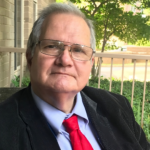
Today is the Solemnity of the Assumption. Pope Pius XII defined the dogma of the Assumption of the Blessed Virgin Mary in 1950, stipulating that “the Immaculate Mother of God, the ever Virgin Mary, having completed the course of her earthly life, was assumed body and soul into heavenly glory” (Munificentissimus Deus 44).
What exactly does that dogmatic definition mean? As regards the Assumption, it means that—unlike each of us at the end of our “earthly life”—Mary never experienced the separation of body and soul. Her body and soul are both in heaven.
That shouldn’t seem so odd to us. It is, after all, what we say we believe. Every Sunday, we proclaim that we “look for the resurrection of the body.” We speak of the Last Day as a reunification of every person’s body and soul.
Again, we need to see things as a process. Jesus’ resurrection is not an isolated act that happened one Easter Sunday two thousand years ago, story finished. Jesus’ resurrection is also the first step, the “first fruits” (1 Cor. 15:23) of the conquest of sin and death begun in the Resurrection. Jesus’ rising from the dead is not just a personal reward; it is what joins him and all who follow him in salvation. That’s why the resurrection of the body on the Last Day is likewise neither mere reward for the saved nor sadistic punishment for the damned.
Human persons are composed of body and soul. The whole human person acts morally: the spiritual faculties decide “I will steal,” but the theft occurs by the physical hand. The whole person, therefore, is good or evil. The whole person, therefore, must be saved . . . or damned.
When God told Adam and Eve they would die from sin, it was not an arbitrary punishment God affixed to their disobedience. No, they could not break away from God without all sorts of other relationships dissolving: with each other (man and woman), with creation (work against a resistant nature), with themselves (a body that suffers, degenerates, and dies). So if man is saved, all that has to be repaired. All that God made was “good.” None of it is discardable junk. So salvation must mend all that has been warped. God wants the human Humpty Dumpty put back together again (and even better than before).
That is the work of salvation history, what fills the time between the first Easter and the Last Day. It’s what our earthly pilgrimage is about.
The Blessed Virgin Mary was free from sin. That’s why the definition cited above speaks of “the Immaculate Mother of God.” So, never having sinned, neither must she suffer the rupture of body and soul. She’s ready for total salvation, body and soul.
That’s also why the pope uses the phrase “at the end of her earthly life” rather than “when she died.” Every other human being experiences death as a sinner. To a greater or lesser degree, he experiences it as a rupture of his personal unity.
Mary experienced it as a transition, from earthly to heavenly life, with none of the guilt or fear that comes from sin or its residue. In that sense, her experience is unique.
The Eastern churches speak of not the “Assumption,” but the “Dormition,” of Mary “falling asleep” to awaken to the Lord. It’s not just literary license. The differentiation recognizes that what Mary experienced at “the end of her earthly life” was qualitatively different from our experience.
Theologians debate whether man’s earthly life would have ended if our first parents had not sinned. That’s not our problem here: suffice it to say, we did. But it is legitimate to ask whether what Mary experienced might not in some way be a reflection of what man absent sin might have gone through at the end of our earthly life (if there would be an end to it).
What we absolutely must disabuse ourselves of is the “normalcy” of death as we know it. It is a “norm” in two senses: morally, it fulfills justice because of sin; statistically, its universality makes it the “norm.” But we must never lose sight of the fact that God did not intend death for man. “God did not make death, nor does he rejoice in the destruction of the living” (Wis. 1:13). In that sense, Mary is more the model of what the human person should have been than any other human being.
Pius XII spoke of the Assumption as a “privilege” God gave Mary. As ever, graces given to human beings (including the graces given uniquely to Mary) are gifts and not entitlements. Mary’s Assumption is a “privilege.”
But I have grown ever more convinced of an insight I have developed from St. John Paul II. John Paul, quoting Vatican II, says that “Jesus fully reveals man to himself.” I don’t think we have fully unpacked the significance of that statement. Vatican II didn’t just say, “Jesus fully reveals God to man,” though that is absolutely true. The council takes us in a different direction. If you want to know what a human being should be, what human beings should be like but for sin, then look to Jesus, “perfect in divinity and perfect in humanity” (as the Council of Chalcedon put it).
Well, if Jesus is true man “in all things but sin” (Heb. 4:15), then Mary, “conceived without sin” and preveniently kept free of the stain of sin by God, also shows us what true human life should be like but for sin. In that way Mary, too, is not just first disciple, but also first model of the new human person in Christ, fully revealing us to ourselves.
Mary’s assumption, then, is a personal privilege in keeping with her sin-free dignity. But it is also a model for us of what being incorporated (Rom. 6:3-4) into the salvation Christ won for us means, body and soul.



